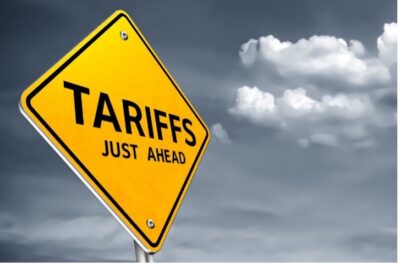Tariffs and Trade
By: Robert Stein, Vice President, Braumiller Law Group
“Those who cannot remember the past are condemned to repeat it.” – George Santayana. As an example of this I present to you the Smoot-Hawley Tariff Act of 1930. If you are not familiar with this, it is worth taking a moment to research. The parallels to the current situation with trade and increasing tariffs are uncanny and likely to continue, regardless of who is elected President later this year.
The Smoot-Hawley Tariff Act of 1930 was enacted by Congress to protect U.S. farmers from foreign competition by increasing tariffs on certain foreign goods. It was also supposed to protect certain US industries from foreign competition. However, it did not work then, and is not likely to work now. We find ourselves repeating the mistakes of the past, potentially looking in the face of the same, if not worse, repercussions.
What was the result of Smoot-Hawley? Decreased global trade and worsening of the Great Depression. After Roosevelt won the election in 1932, the authority to negotiate tariffs with foreign heads of state came under control of the White House in 1934 with the Reciprocal Trade Agreements Act. This allowed tariff reduction, compelling an increase in global trade, and showing a path out of the Great Depression.
The onus is on the United States to find non-tariff ways to bring trading partners who trade unfairly to the table. But continuing to implement tariffs to punish unfair traders is like drinking poison and expecting your enemy to die. We know the costs of additional tariffs are ultimately borne by the importer and passed on to the consumer and not absorbed by the unfair trader. New strategies such as the Uyghur Forced Labor Prevention Act (UFLPA) have been extremely effective at curtailing forced labor and the unfair trade advantages it brings to countries such as China, while Section 301 duties have done little to stop Chinese imports and simply exacerbated inflation to consumers. The landed cost of Chinese goods, even with the additional tariffs, is still less than procuring the product from the US or even most other countries. Plus, the added expense of moving a supply chain away from China to another low-cost labor country only increases costs further. Added costs will be passed on to the consumer every time.
Another more nuanced way that increasing tariffs have hurt the US economy is that US manufacturers have a global supply chain that relies on procuring quantity and quality of raw materials that are often not available in the US. When new tariffs are implemented, these US manufacturers face increased costs on their raw materials that competitors who make the same product overseas do not face. This results in finished goods with higher costs. US manufacturers already face some of the highest labor, environmental, and overhead costs in the world. Increasing the cost of raw materials by implementing more tariffs simply increases the disadvantage and forces US manufacturers to look overseas for manufacturing options.
We live in challenging times that will require us to think outside the box for effective solutions to unfair trade and global problems such as forced labor. New tariff and protectionist policies may be politically popular, especially in an election year, but they will not help the US economy to maintain its dominance in the global economy. With 8.8 million jobs currently available for 6.4 million unemployed people, we should be looking at ways to close that gap to make us more productive and drive down costs. Perhaps a thoughtful solution to our immigration issues could help promote a better selection of workers. A focus on lower income housing with support services to kick start the lives and careers of people caught on the lowest rungs of society would also boost more workers into our economy. These types of creative ideas, while not as popular as tariffs, may prove to be more durable ways to solve the issues of U.S. competitiveness in a global economy.
We must continue to find diplomatic and non-tariff solutions to issues of unfair trade and resist the temptation to yield to tariff based solutions that ultimately demand that our consumers bear the burden of a punishment meant for unfair traders.

























